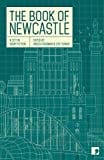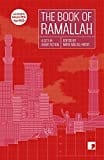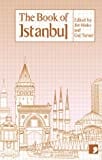Psychological thriller set in Berlin
Introducing “Reading the City” from Comma Press
24th April 2021
Reading The City
The Reading the City Series, published by Comma Press, celebrates the best translated short stories from around the world. Since 2006, Comma Press have sourced a selection of ten authors from specific cities to collate ten short stories that depict the social, historical or political essence of their contemporary city. Each story is translated (for the first time) into English and published, so that each anthology is a ‘city in short fiction’.
The Book of Birmingham
Few cities have undergone such a radical transformation over the last few decades as Birmingham. Culturally and architecturally, it has been in a state of perpetual flux and regeneration, with new communities moving in, then out, and iconic post-war landmarks making way for brighter-coloured, 21st century flourishes. Much like the city itself, the characters in the stories gathered here are often living through moments of profound change, closing in on a personal or societal turning point, that carries as much threat as it does promise.
Set against key moments of history from Malcolm X s visit to Smethwick in 1965, to the Handsworth riots two decades later, from the demise of the city s manufacturing in the 70s and 80s, to the on-going tensions between communities in recent years these stories celebrate the cultural dynamism that makes this complex, often divided second city far more than just the sum of its parts.
 The Book of Tehran
The Book of Tehran
A city of stories short, fragmented, amorphous, and at times contradictory Tehran is an impossible tale to tell. For the capital city of one of the most powerful nations in the Middle East, its literary output is rarely acknowledged in the West. This unique celebration of its writing brings together ten stories exploring the tensions and pressures that make the city what it is: tensions between the public and the private, pressures from without judgemental neighbours, the expectations of religion and society and from within family feuds, thwarted ambitions, destructive relationships. The psychological impact of these pressures manifests in different ways: a man wakes up to find a stranger relaxing in his living room and starts to wonder if this is his house at all; a struggling writer decides only when his girlfriend breaks his heart will his work have depth… In all cases, coping with these pressures leads us, the readers, into an unexpected trove of cultural treasures like the burglar, in one story, descending into the basement of a mysterious antique collector’s house treasures of which we, in the West, are almost wholly ignorant.
 The Book of Tbilisi
The Book of Tbilisi
Tbilisi is the largest city and capital of Georgia, with a population of more than 1.5 million people. Located at the crossroads of Europe and Asia, this vibrant city is a melting pot of different ethnic groups and languages, having been fought over by rival empires and powers for centuries. This complex history of foreign dominance and control is reflected in both the literature and architecture of the city, which is a mix of Middle Eastern, Art Nouveau, Stalinist and Modernism.
The Book of Tbilisi will bring together ten short stories written about and from the Georgian capital, showcasing the work of some of the country’s most loved writers.
 The Book of Shanghai
The Book of Shanghai
As the end of the world arrives in downtown Shanghai, one man’s only wish is to return a library book…
When a publisher agrees to let a star author use his company’s attic to write in, little does he suspect this will become the author s permanent residence…
Shanghai succumbs to a seemingly apocalyptic deluge, a man takes refuge in his bathtub, only to find himself, moments later, floating through the city’s streets…
The characters in this literary exploration of one of the world s biggest cities are all on a mission. Whether it is responding to events around them, or following some impulse of their own, they are defined by their determination a refusal to lose themselves in a city that might otherwise leave them anonymous, disconnected, alone.
From the neglected mother whose side-hustle in collecting sellable waste becomes an obsession, to the schoolboy determined to end a long-standing feud between his family and another, these characters show a defiance that reminds us why Shanghai despite its hurtling economic growth remains an epicentre for individual creativity.
 The Book of Newcastle
The Book of Newcastle
The original Northern Powerhouse, Newcastle upon Tyne has witnessed countless transformations over the last century or so, from its industrial heyday, when Tyneside engineering and innovation led the world, through decades of post-industrial decline, and underinvestment, to its more recent reinvention as a cultural destination for the North. The ten short stories gathered here all feature characters in search of something, a new reality, a space, perhaps, in which to rediscover themselves: from the call-centre worker imagining herself far away from the claustrophobic realities of her day job, to the woman coming to terms with an ex-lover who’s moved on all too quickly, to the man trying to outrun his mother’s death on Town Moor. The Book of Newcastle brings together some of the city’s most renowned literary talents, along with exciting new voices, proving that while Newcastle continues to feel the effects of its lost industrial past, it is also a city striving for a future that brims with promise.
 The Book of Cairo
The Book of Cairo
A police officer tortures one last suspect in the most important assignment of his career: to find the ultimate Truth…
A woman confesses her love to a reclusive, masked man in a video rental shop…
A disgraced doctor confronts a man whose job it is to create rumours that spread across Cairo…
Once the centre of the ancient world and, for a thousand years, a welcoming destination for explorers and tourists, Cairo has more recently become a city determined to forget. Since 2013, the events of Tahrir Square and Rabaa al-Adawiya have been gradually erased from its official history; writers have been imprisoned, publishing houses raided, and independent news sites shut down by the authorities. With the Egyptian government currently moving many of its ministries to the desert new builds, east of Cairo, the city’s future (as well as its past) seem uncertain.
Here ten new voices offer tentative glimpses into the city s life at a time when writing directly about its greatest challenges is often too dangerous. With satire, surrealism, humour and a flair for the microcosm, these stories guide us through the slums and suburbs, bars and backstreets of a city haunted by an unspoken past.
 The Book of Tokyo
The Book of Tokyo
A shape-shifter arrives at Tokyo harbour in human form, set to embark on an unstoppable rampage through the city’s train network…
A young woman is accompanied home one night by a reclusive student, and finds herself lured into a flat full of eerie Egyptian artefacts…
A man suspects his young wife’s obsession with picnicking every weekend in the city’s parks hides a darker motive…
At first, Tokyo appears in these stories as it does to many outsiders: a city of bewildering scale, awe-inspiring modernity, peculiar rules, unknowable secrets and, to some extent, danger. Characters observe their fellow citizens from afar, hesitant to stray from their daily routines to engage with them. But Tokyo being the city it is, random encounters inevitably take place – a naïve book collector, mistaken for a French speaker, is drawn into a world he never knew existed; a woman seeking psychiatric help finds herself in a taxi with an older man wanting to share his own peculiar revelations; a depressed divorcee accepts an unexpected lunch invitation to try Thai food for the very first time… The result in each story is a small but crucial change in perspective, a sampling of the unexpected yet simple pleasure of other people’s company. As one character puts it, ‘The world is full of delicious things, you know.’
 The Book of Liverpool
The Book of Liverpool
A baby blown out of an upstairs window by a WWII bomb lives to hear others tell the tale…
A woman embarks on a long-term obsession with a city landmark, abandoning her lover for the Liver…
A bricklayer working on the foundations of a never-built cathedral becomes its evangelist, its full splendour soaring only in his mind…
Bringing together fiction from some of the city’s most celebrated writers, The Book of Liverpool traces the unique contours that decades of social and economic change can impress on a city. Set against key historical moments from the Second World War to the Capital of Culture year, these stories question what ‘belonging’ and ‘home’ mean in the Liverpudlian context, from the regenerated city centre to satellite suburbs, from the sparring cathedrals to the no-go concrete housing estates. Liverpool emerges in these short stories as a city in constant flux: haunted by ghosts, buoyed up by myths, and shifting with an ebb and flow like the Mersey itself.
 The Book of Venice
The Book of Venice
With its gondola-filled canals and beautiful architecture, the floating city of Venice is unlike anywhere else in the world. It is a city where apparent opposites intersect; at once aquatic and terrestrial, past and present, east and west, spiritual and carnal, imaginary and real. It is this mystery and mulitplicity that has long offered inspiration to writers and storytellers; from Thomas Mann and Proust, to Elizabeth Wharton and TS Eliot. In his 1882 essay ‘Venice’, Henry James famously wrote that there was nothing new to be said about Venice. The short stories gathered in this anthology each written by writters based in or from the city challenge this notion, offering new perspectives on one of the world s most coveted destinations. Translated by Orsola Casagrande and Caterina Dell’Olivo.
 The Book of Jakarta
The Book of Jakarta
A young woman takes a driverless taxi through the streets of Jakarta, only to discover that the destination she is hurtling towards is now entirely submerged… A group of elderly women visit a famous amusement park for one last ride, but things don’t go quite according to plan… The day before her wedding, a bride risks everything to meet her former lover at their favourite seafood restaurant on the other side of the tracks… Despite being the world’s fourth largest nation – made up of over 17,000 islands – very little of Indonesian history and contemporary politics are known to outsiders. From feudal states and sultanates to a Cold War killing field and a now struggling, flawed democracy – the country’s political history, as well as its literature, defies easy explanation. Like Indonesia itself, the capital city Jakarta is a multiplicity; irreducible, unpredictable and full of surprises. Traversing the different neighbourhoods and districts, the stories gathered here attempt to capture the essence of contemporary Jakarta and its writing, as well as the ever-changing landscape of the fastest-sinking city in the world.
 The Book of Ramallah
The Book of Ramallah
A coffee seller waits all day for one of his customers to ask him how he is, until eventually he just tells the city itself…
A teenager is ordered off a bus at a checkpoint and told he must kiss a complete stranger if he wants the bus to be let through…
A woman pilgrimages to the Cave of the Prophets, to pray for rain for her tiny patch of land, knowing it will take more than water to save it…
Unlike most other Palestinian cities, Ramallah is a relatively new town, a de facto capital of the West Bank allowed to thrive after the Oslo Peace Accords, but just as quickly hemmed in and suffocated by the Occupation as the Accords have failed. Perched along the top of a mountainous ridge, it plays host to many contradictions: traditional Palestinian architecture jostling against aspirational developments and cultural initiatives; a thriving nightlife in one district, with much more conservative, religious attitudes in the next. Most striking however as these stories show is the quiet dignity, resilience and humour of its people; citizens who take their lives into their hands every time they travel from one place to the next, who continue to live through countless sieges, and yet still find the time, and composure, to create.
 The Book of Gaza
The Book of Gaza
Under the Israeli occupation of the ’70s and ’80s, writers in Gaza had to go to considerable lengths to ever have a chance of seeing their work in print. Manuscripts were written out longhand, invariably under pseudonyms, and smuggled out of the Strip to Jerusalem, Cairo or Beirut, where they then had to be typed up. Consequently, fiction grew shorter, novels became novellas, and short stories flourished as the city’s form of choice. Indeed, to Palestinians elsewhere, Gaza became known as ‘the exporter of oranges and short stories’.
This anthology brings together some of the pioneers of the Gazan short story from that era, as well as younger exponents of the form, with ten stories that offer glimpses of life in the Strip that go beyond the global media headlines; stories of anxiety, oppression, and violence, but also of resilience and hope, of what it means to be a Palestinian, and how that identity is continually being reforged; stories of ordinary characters struggling to live with dignity in what many have called ‘the largest prison in the world’.
 The Book of Dhaka
The Book of Dhaka
Dhaka may be one of the most densely populated cities in the world – noisy, grid-locked, short on public amenities, and blighted with sprawling slums – but, as these stories show, it is also one of the most colourful and chaotically joyful places you could possibly call home. Slum kids and film stars, day-dreaming rich boys, gangsters and former freedom fighters all rub shoulders in these streets, often with Dhaka’s famous rickshaws ferrying them to and fro across cultural, economic and ethnic divides.
Just like Dhaka itself, these stories thrive on the rich interplay between folk culture and high art; they both cherish and lampoon the city’s great tradition of political protest, and they pay tribute to a nation that was borne out of a love of language, one language in particular, Bangla (from which all these stories have been translated).
 The Book of Istanbul
The Book of Istanbul
Istanbul. Seat of empire. Melting pot where East meets West. Fingertip touching-point between continents. Even today there are many different versions of the city, different communities, distinct peoples, each with their own turbulent past and challenging interpretation of the present: each providing a distinct topography on which the fictions of the city can play out. This book brings together ten short stories from some of Turkey’s leading writers, taking us on a literary tour of the city, from its famous landmarks to its darkened back streets, exploring the culture, history, and most importantly people that make it the great city it is today. From the exiled writer recalling his appetite for a lost lover, to the mad, homeless man directing traffic in a freelance capacity… the contrasting perspectives of these stories surprise and delight in equal measure, and together present a new kind of guide to the city.
 The Book of Leeds
The Book of Leeds
Millgarth Police Station reverberates with the early adrenalin-rush of a case they won’t close for years.
A teenage boy trails the city centre bars of the eighties in thrall to his hero – a Leeds United football hooligan.
A single woman finds her frustrations with men confirmed speed-dating in a city re-invented as a party capital.
Bringing together fiction from some of the city’s most celebrated writers, The Book of Leeds traces the unique contours that fifty years of social and economic change can impress on a city. These are stories that take place at oblique angles to the larger events in the city’s history, or against wider currents that have shaped the social and cultural landscape of today’s Leeds: a modern city with both problems and promis
 The Book of Rio
The Book of Rio
It’s the city the rest of the world descends on to party…. whether for the spectacular annual Carnival, the sun-kissed beaches, the World Cup, or, in 2016, the Olympics. It’s also a place that’s sadly become synonymous with some of the excesses of partying, the dark underbelly that accompanies any urban hedonist’s destination. But these are just two images of Rio. There are countless others: opulent seat of two former empires; stronghold of brutal, twentieth-century dictatorships; sprawling metropolis stretched between stunning mountain tops and equally stunning economic extremes – from the affluence of neighbourhoods like Leblon and Ipanema, to the overcrowded slums in the foothills, the favelas.
This anthology brings together ten short stories that go beyond the postcards and snapshots, and introduce us to real residents of Rio – the cariocas: young hopefuls training to be the next stars of samba, exhausted labourers press-ganged into meeting an impossible construction deadline (the nation’s pride being at stake), bored call-girls, nostalgic drag queens, married couples having petty middle-class domestics…. These are characters who’ve developed a deep understanding of Rio’s contradictions, a way of living with the grey areas – between the grime and the glitz – that make Rio the ‘marvellous city’ it is.
 The Book of Riga
The Book of Riga
Ten short stories written by Latvian authors and set in the country’s capital city….
A suicide attempt, staged to attract as much attention as possible, from the top of St. Peter’s Church, quickly evolves into an outlandish and absurd, televised spectacle… When a PA is invited into her boss’s office one day to observe a protest unfold, just as he predicts, in the streets below, she begins to suspect his powers of foresight might extend beyond mere business matters… Finally moving into the house of her dreams, on the island of K psala, a single mother discovers a strange affinity with the previous occupant… Riga may be over 800 years old as a city, but its status as capital of an independent Latvia is only a century old, with half of that time spent under Soviet rule. Despite this, it has established itself as a vibrant, creative hub, attracting artists, performers, and writers from across the Baltic region. The stories gathered here chronicle this growth and on-going transformation, and offer glimpses into the dark humour, rich history, contrasting perspectives, and love of the mythic, that sets the city s artistic community apart. As its history might suggest, Riga is a work in progress; and for many of the characters in these stories, it is the possibilities of what the city might become, more than merely what it is now, that drives the imagination of its people. This book is published with the support of the Ministry of Culture of the Republic of Latvia and The Latvian Writers Union. Translated from the Latvian by Kaija Straumanis, Suzanne McQuade, Uldis Balodis, Ieva Lesinska, Marta Ziemelis and Zanete Vevere Pasqualini. Foreword by Former President of Latvia (1999-2007) Vaira Vike-Freiberga.
 The Book of Havana
The Book of Havana
When a history teacher decides to throw out an old, threadbare Cuban flag, he doesn’t plan for the air of suspicion that quickly descends on him…
A woman’s attempt to register ownership of her family home draws her into a bureaucratic labyrinth that requires a grasp of higher mathematics to fully comprehend…
On the day of their graduation, a group of students spend the night drinking around the ‘Fountain of Youth’, ironically celebrating the bright future that doesn t await them…
The stories gathered in this anthology reflect the many complex challenges Havana’s citizens have had to endure as a result of their country s political isolation from the hardships of the ‘Special Period’, to the pitfalls of Cuba s schizophrenic currency system, to the indignities of becoming a cheap tourist destination for well-heeled Westerners. Moving through various moments in its recent history, as well as through different neighbourhoods from the prefab, Soviet-era maze of Alamar, to the bars and nightclubs of the Malecón and Vedado these stories also demonstrate the defiance of Havana: surviving decades of economic disappointment with a flair for the comic, the surreal and the fantastical that remains as fresh as the first dreams of revolution.
 The Book of Khartoum
The Book of Khartoum
Khartoum, according to one theory, takes its name from the Beja word hartooma, meaning ‘meeting place’. Geographically, culturally and historically, the Sudanese capital is certainly that: a meeting place of the Blue and White Niles, a confluence of Arabic and African histories, and a destination point for countless refugees displaced by Sudan’s long, troubled history of forced migration.
In the pages of this book – the first major anthology of Sudanese stories to be translated into English – the city also stands as a meeting place for ideas: where the promise and glamour of the big city meets its tough social realities; where traces of a colonial past are still visible in day-to-day life; where the dreams of a young boy, playing in his father’s shop, act out a future that may one day be his. Diverse literary styles also come together here: the political satire of Ahmed al-Malik; the surrealist poetics of Bushra al-Fadil; the social realism of the first postcolonial authors; and the lyrical abstraction of the new ‘Iksir’ generation. As with any great city, it is from these complex tensions that the best stories begin.
 The Book of Sheffield
The Book of Sheffield
Known for both its industrial roots and arboreal abundance, Sheffield has always been a city of two halves. From elegant parks and gardens to brutalist high-rise estates and the hinterland nightclubs of ‘Centertainment’, it is a city caught between the forges of the past and the melting pot of the present. Bringing together new short stories from some of the city’s most celebrated writers, The Book of Sheffield traces the contours of this complex landscape from both sides of the economic dividing line. From the aspirations of young creatives, ultimately driven to leave, to the more immediate demands of refugees, scrap metal collectors, and student radicals, these stories offer ten different look-out points from which to gaze down on the ever-changing face of the ‘Steel City’.
There are more titles coming online including Barcelona and Jakarta, keep your eyes peeled! Connect with Comma Press via their website and on Twitter and Insta
Join team TripFiction on Social Media:
Twitter (@TripFiction), Facebook (@TripFiction.Literarywanderlust), YouTube (TripFiction #Literarywanderlust), Instagram (@TripFiction) and Pinterest (@TripFiction)



 The Book of Tbilisi
The Book of Tbilisi The Book of Shanghai
The Book of Shanghai The Book of Newcastle
The Book of Newcastle

 The Book of Liverpool
The Book of Liverpool The Book of Venice
The Book of Venice The Book of Jakarta
The Book of Jakarta The Book of Ramallah
The Book of Ramallah The Book of Gaza
The Book of Gaza The Book of Dhaka
The Book of Dhaka The Book of Istanbul
The Book of Istanbul
 The Book of Rio
The Book of Rio The Book of Riga
The Book of Riga The Book of Havana
The Book of Havana The Book of Khartoum
The Book of Khartoum The Book of Sheffield
The Book of Sheffield Please wait...
Please wait...

I like the sound of these short ‘potted’ city snapshots, especially some of the interesting locations which have been made the chosen features!
They are a little pricey to invest in them all, but I might select one or two, just to get a flavour for them!
Thanks for sharing 🙂
1 Comment
Thank you. I think a little cherry picking is indeed in order. It will be interesting to see which further titles they will pick going forward!